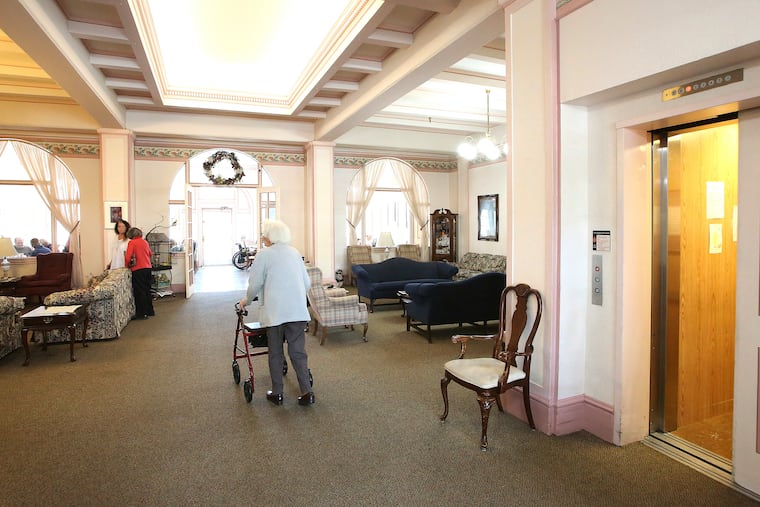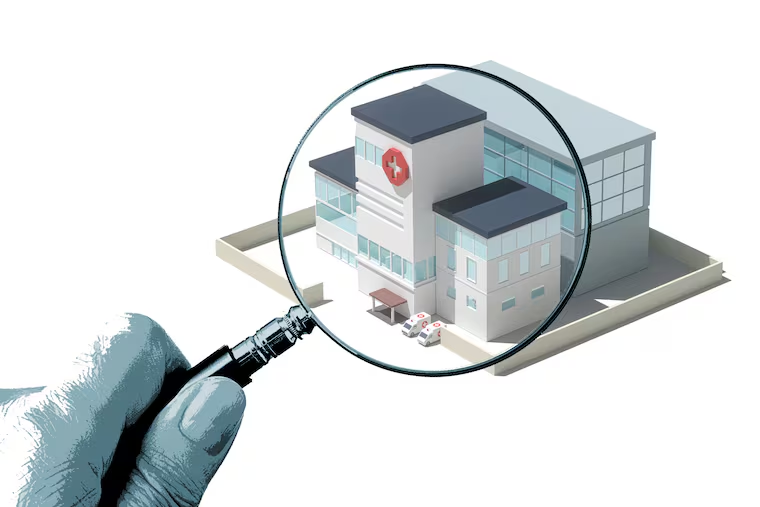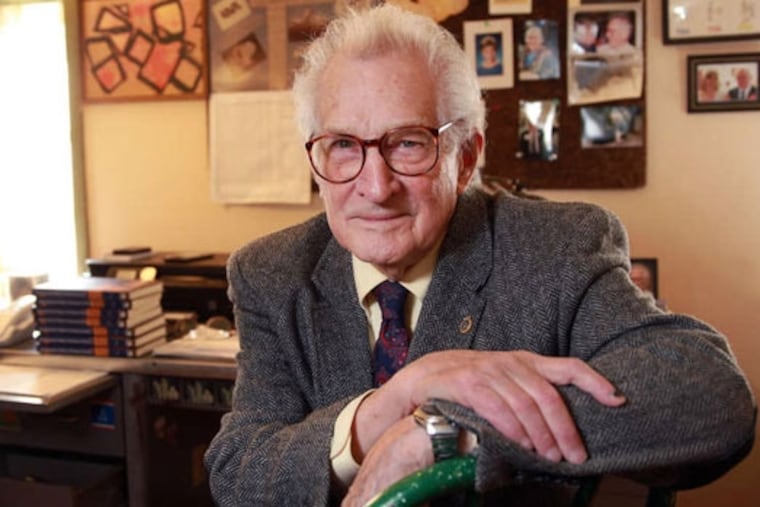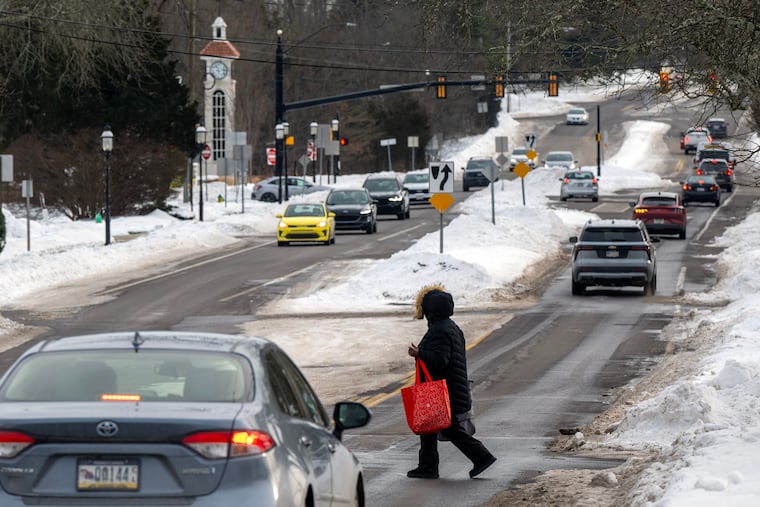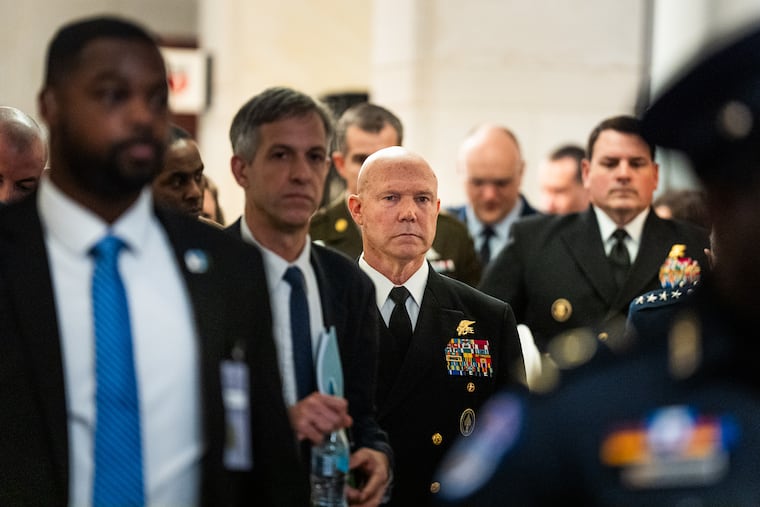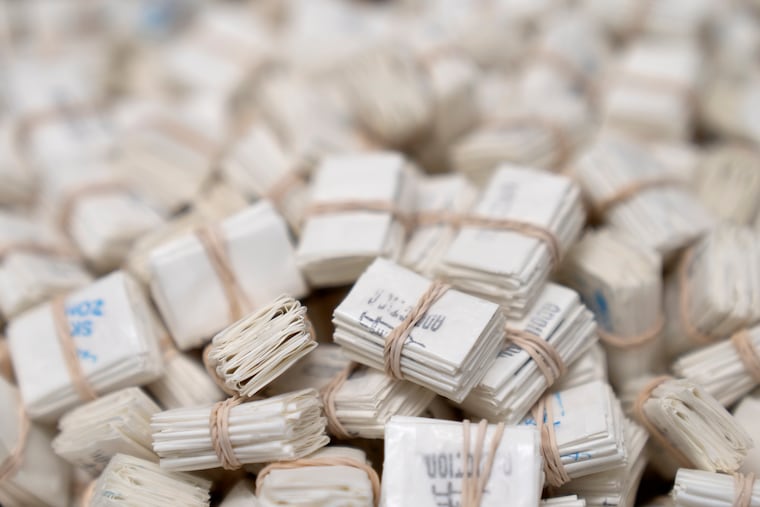Skip to contentPaula Span, KFF Health News
Joanna Fong-Isariyawongse, The Conversation
Barry J. Jacobs and Julia L. Mayer, For The Inquirer
Joanna Fong-Isariyawongse, The Conversation
Joanna Fong-Isariyawongse, The Conversation
Barry J. Jacobs and Julia L. Mayer, For The Inquirer
John Lin and Jalpa Doshi, For The Inquirer
BriarRose Edwins and Hayley Goldner, For The Inquirer
Layla Bouzoubaa, The Conversation
Marcia Dunn, Associated Press
Adela Suliman and Kasha Patel, Washington Post
Marcia Dunn, Associated Press
Adela Suliman and Kasha Patel, Washington Post
Noah Robertson, Tara Copp, and Ellen Nakashima, Washington Post
David Ovalle and Cate Cadell, Washington Post
Geoff Mulvihill, Associated Press
Noah Robertson, Tara Copp, and Ellen Nakashima, Washington Post
David Ovalle and Cate Cadell, Washington Post
Geoff Mulvihill, Associated Press
{"ENV":"VF1VXVsxVgRrc1VGWFR8A3xgYAZ0DHBCfGNkCg==","CONTENT_BASE_PROD":"fAR7Q1gLXgR8BVpNY1RwA39gYE93HHdYf3NgBmMiY1x/c2hPdjJnXHxwfE92ImRNf2B/W3YycABrYHgHdxx0BHxjaAd2ImNff2BrXncLb118Y1IGdxx/WH9aaAR0VG9eaGN/WnRUY10=","ARC_ACCESS_TOKEN_PROD":"Ull8B1g+XQdSf3ADWD54A3xzYE9gMmRPfGBgBGAcZ118TVpAYAxgB3xzYEBjInRCf2NkQGAMcAF8WmhNdAx8B3xgf19gMn9dfFp4T2MMdE9/YGROdzFsTXxNfE12MnxCf2NnW3cycAV8Y3tbdCJkBXxde1pjMndea11wT2MiZ1l8c1ladAx4THxjc150MnNZa1pkT2MMd198Y2AEdAxwBXxzVk9gMW9eaGNzW2MhbAVrYHdbdAtgT2hdYE9jDHQBa1pnWnQib1l8Y3dadwtgBw==","GRAPHQL_KEY":"f29nA10LfwF/YGdfWzJkA39NUkBgHHtZfF1aBHcxb19/WmBPdBx/WHxdYEBjDGwBf2NjWnYyf1lrY3hOdBxnX2tjdE90MnxPf2BoBmMMc15rWnRPdzFsT3xzVkB0VGAFfHB0QHQ3CAg=","GATEWAY_URL":"f114QFoMXUx/c2tFdz58A3xgdAZ3MmNZfGB4B3cydAF/YGAHYBxwAGhdeEBjMmRCf01WQHcMd15/cGBAdiF8AX9zeAZ3C3wAfF1zXmMhf11oWmtbYDF/Xg==","GATEWAY_SLS_URL":"UFpZWFoIdAdQWnxPWD50A39zaEBjDHQHfGB4QGMiZ198c3xPdjJkT2tgZEBgHHNffF14BmMyd158c2QHYFRgB3xjUkBgVGAEfF17W3QxYEJrY1VbYDFsBA==","FEEDS_URL":"VHAAR2M+UVlUXXsFWgteA39jY1tjInRNfHB4QGAyc158Y2AHdxx3WHxzYE92InRPfF1aT3QycAd/c1pPdzFsBGhdVVp0InxMfAV0QHdUYE18Y2BNdCFsT2tjYE13MlYGfE10TnYhbABrY2NadyFvXnxzaAo=","RESIZER_KEY":"Ul1zR1g+b01rBWtYdAtwA39zaARgDHBNfHB4BGMyZ1x8BXxNdwx8Bn9jYEBgMn9df3N0TWAMYAdrXVJPYDFjXXxaZE9gMnwAa2NoTXYiZExrY3BNYAtgB2tjfE5gC2NYa2N0BncnCAg=","GOOGLEANALYTICS_ID":"U3NdQ1sxcAFSBQhEWjFgA39jWk9jMmAEfFpgQGAyd1h/cGgGdDJgB39gZE52MngG","TWITTER_API_TOKEN":"UlpnT3cic1pSWkEBXCFeA3xdVk53DH9ff1p8BmAxY1x8Y1JAdBx4T3xgZE12MWxMfF1kTXQyb1xoXXRPdDJ/X2tjWkB3IngHfFprWmMxY118Y3wHYDJRWGtdVgZ0HHQAa114T3QLY19rWmBNYyFsB2haY192IWAEfGNdW2ALZ1xrY3xNdAxzXXxgY1p0IXNZaF1zW3cyd1x8c39cYFRgTWgFe1x3HHAHaE1/XmAxf198Y3taYAt4B2tje112MXtYa2NdXXcxZABoWmdfdyFvX3xwe1p0IWAEfHNoT3Qhe1hoTXdbYAtwB2hgd1pgVGAEfHNzW2Mhe1hrXWNedzFvXWtze19gDGRPaAV7XHdUbARrc1lcdFR7XmtzZE9jC2ddfmNaAncLeExoTXdddwtkBGtad1xgMXgGaAV0Cg==","GOOGLE_CLIENT_EMAIL":"VFlBTl0MUV1TWWQHYwxeA3xjYE9jDHBCf2NWT3Qid1h8Y1JAdCJjX3xjUgZ3MnBNfAV0QHYydAFoXWRPd1RgBnxzfEBgMnwBf3N7WmMMe198BXhOdyJRXnxad1t3MnwHfwVjW2MhfARrWmtbdjFjXHxNe150IWNYfHNrWmALcARrXXtfdxx/XGtdZ1x0Mn9eaGBjXWMhb118WmQFYFR4B35jeAo=","GOOGLE_PRIVATE_KEY":"fF1dBl0MeAdTBFIGdDJaT2hdd1t3ImAEa3NjXHQyXkJoY39ddwxgQn9jaE53DGAEf014A3cLYAR/c3NddyF8B2hNa1p0MmRCf118B3QcYAZ/Y3ACdyF4TH9weE13MnwFa3B7W2MMcE1oBXdedyFsBHxNe113DF1daF1nXncxZ1h/YGNbdCFkBHxaaE9jMmwFa2NjW3chbAV/c3gFYzFkB2hNUgd0InNef01nW2ALZAV8c2AHYwt7X39jVgZ2IXtefnBjXXcMZ1xrYGgEdiFzX3xgaEB2IlldfGN4QGAMZAV8XVlddjJ3XWtgaAJjMlIEf3NWTWMiWVh8WndadiJWAGhdXV5gHFlZfwVkBWMLb11rWntaYwxRXGhNZAR2MmdffFp0T3YyXgB8BWBPYyFvXX9dXV9jMWdefnB8BmMye158BWQGYAt8AGtzWVtjIXtcfAV/XWMieABoYGdadiF8AWtzVk13DHwHfF1wBHdUeAV/c3Ncdwx8BGhjcE9jDHtcf2NjXHdUfAZ8XWBOdBx/XH9NaEB0MWdYf11zXHcif1x/Y2deYwx4TGhdY11gMWBMfE1wA3ciXVx8XWBAYAtzWH5zdEB0IXNdfwVkBXQhfAd+Y1pAdyJ3XWhdf1p0C29ca3NgTWAcZEx/XWBOYDJzXX9adEBjInNZaGB0QHQheE1/cGQGdiJzXHxwe1t2IXtfaE1zWnYiYAV8cH9eYwxeAGtadE12InwAf2BkQGMyVgd8Y11eYwtnWWtjWgRjDHgAfmBoTXQyd198BWtaYwx7XX5gf1x2IXABfHBoTmMMZ15/cGQEYDJwAX9we1xgHHddf11WBWMyY11/cHRAdjJgAH9aZAR0Mndcf2NWTmMyWV5/cGBAYFRvX3wFYE92IWAAaGBjXGMie1loYHhPdiJzWH5wf15jMllea2N/XHchZAV8c2hAdCJ4BWtzc113InhCa11kBnQxeEx/XXwCdyJ8BmtjY150ImBCf01jW3cMYE1oY3AGdyJSB2tzVVpgC2BCfHN8A3ccfAV/Y3RNdAxkBXxzaE53MWAHfGNgB3Qyf1xoBXdddBxzWGhdYE93IXAHaE1kTnQMfExoWnROdyFvWH5gYANgMWNcfnNjWnYxb1hoYGAFdyF4BmgFf1tjIXgAfAV0BXYieAFrcHwHYyJ4BH5gdAdjC2dYfHNjXGAMXgB8WmhNdAxZXmhgeE9gDFlYa3B8TXYyZAVoTVYCdjJ/X2gFfAN2MmddfnBoQGMMXV1rWngHYwxWAHwFZE5gDGNdaFpgBXQxY1l/WmdbYDFvWWhjWk9jIX9da2NaTmMMXV58BWdbYyJ3WGhaaAZ2Mm9YaGB3XWMhbAB/BXxOYAxgAGtjWVtjMX9YaFp4BmAMXgR/TVVddAxgTHxzfEB3InAHf01STXQcUk9/TWRAdwtkBn9zcE53HHAGfHNkA3ccbEx8WmtddDJWBX5jfAZ0MmwEf2NgBmAybAV+c2BPdAtnXH5za1t0MllZf3NkAncMVgZ+c2BAdAtkQnxadAVgC2dZa1pjWncyVgB/YHRAdwxkTWtaZ1tgMlYAfGBrXmMyXVx/Y1ZNYAxeBWtdcAJjMnAFaF1VXWMxZ1hoTWBPYAxvXX9wd1xjDFFefGBoBWAMXV5oBWtfdjFgBX5zY1tgC3BCaGBnX2AMY1xrWmhPYzJRXH5wa19gMl1dfmB4TWMhc11+Y1pAdCJ3X2tzXVxgMmdZaFp4A2MhZ1l8YGBNYwx7X3xwe1t2Ml4Ba3BgBGAyY1hrYHteYzJ0AX5jWVxgC2NefAVkB2AyWV5oBWNbYBxSAWtaaAdgVGdefnNdX2MiXVx+cGdbdyJ8TX9zcAV3MXgGfE1zXHciVgdoBXhPdCJgTHxaaAd0IngGaGNwBnQifAd8TWtdYAtvXH5jfAJjDFFcfHNkA3Qcc1h/BXgEdzF4B2hdYAN0Mn9YfwV0QHcxZE1oY3BAdDJ3XH9jWgR3InBCaAVkBWALbAR+Y3ADYzFzXWtgdE53In9cfFpkTXQheAd8BXtcYFR/WWtwe15gC3wAa1p4TnQcYE1+YHtbd1R7WGtgYE92Imdcf11SBHYxf15+cGQCYDF8AGhgYE9gVHwGaGBrXHYhe1xoBWgGdCJ7XX9gaE5jIXNefFp4TnYxY1h8BXRNYBx3WGtae1xjDFFfa3B8B2MxY11rY1YFdiFjXGtzWgd2MmddfwVgBHYyd1h8c1YEYAxdWWtaY152MnAAfFpnXGAcXV5/XWNaYwxRWX9NWVt2MnddaAVgT2Myc1h/YHgDdiJjWGtdf153InRCfmN0T3QcUgZ8XX9adFRkBH9NY153MnAHfE1gAnQLbAR8c2QCdBx4Qn9jZ1t3HHQGa2NSBnQyZE1oBXgHdyFkTWhdfAJ3C2QEfmNgBGAxY1h/YGgCYDJSB2tga11jMWAHf11gBmAxZ1x8WmdbdDJeBGhge1xjMn9Za2B3W3cibAV8c2NfYzFnWWhNWgVgC3NZfnNzXnYxZAB/Y2AEYAxzWX5gY1x3MWwGf3BrX2MyfAd8TVYEYAtwAX9aYARjInddaF1ZXGMxb1h+cHQDYAxgAX5zVgJjMl1ffmNkBnYhe1l/BWdddjJRWX5gaE92ImdYf3B/XmMMe1x+YGgDYAx4AX9dWgZ3Ml1YaAVjWmAcUVlrXVZNYAtzXX9aaAJjMl4BaAVrXWMhY19+cGddYwxZX2tzXVx2IWdea2BgBmMif1x+Y1oHYDF4AH5zVk5jIWAEf2NrW3QcXgR/XWtddCJ0BX9da150IWRNfHNkBnQhbExoXVIHdCFwT2tjY1t3VGxMfmN/XHccXkJoTWtfdyJvWX9NcAN3MW9df3N8B2MMWVx8XVIDYAt4BGtjcAV0DF5NaF1aTmMMe1l8cHQHYDJzXXxaeAVjMlFZa1p3WnciVk1/c3NfYDJ/XX9jZAd3IntefmBoBXYxY118XXRNdCF4BX9wdE9gC39da3B8BGBUeAB+Y2gHdBxzXmtweE1gMmNdf11gTmAccEJrXWNbdiJjXWtaYAN2IXtcaGBoBWAxZ1h/cHhPdiFzWGhgZ1pjIWddf3BrW2MMWVl8WmACYAxSAH5gdAJgVHtefE1aBXYiXV58c1oGdjJvXn9NXVp2IntZfHBjXnYiXgF/WmhAdjFnXH5zXVtgDFlYfFp0AnYxZ158XVYGdiF7WHxaa1t2InwBa3BrXHcieE98XVJPdCJWBHxNcE10HHxNfmNjW3QxbEx/Y2NbdAtsBX9NZ1t3MmxPf3N/XncLeAdoTWdbdCJkB2tzZAV3IWAEaF10BHQyXgZ8TWAEYzJvWH5weE1gMXAFa11oBWMLZEx8TWdcYAxkT3xga112MmdcfE1nX3YxcE18c3RNdwt8AGtdc11jMmAGf01dXHciUgF+YGNbdCFgAH9zWk90Intff3B7WncyUgV8YHQGYzJjWH9dZAZ3DGdefFp/XHYhZABrXWNcdiJST35gfE13IWQFa1pnWmBUYAFrXVpAdiJRXWtaZ11jDHtda1pkBmALY1xoXWtfdiJ3WGtaaAVjIWdefAVrXWAyY1x8BWNbYDJeAH5zWV9jMn9Za2NdXWAxY11+c1ldYBx3XnxjVgNjDGABf01zWmAyfABoWmNbdiJnX2hjWk1jMnABfF1ZXGALeAF/Y2dedzJ0QnxdfAR0DFIFf2N4QHchZEx/Y3Nfdwt8BX9wZAR0HGQFfmNgTnQhcAR+YGgFdBxWTGhda1xjMl5CfHNoAncib118WnQDdAx0TXxzZ193MlZCfF17X2AyYAV+Y3QFYDJ/WX9zc1t3IntcfHBrX2MLbAZ8TWgHdwtnXWtaaAZjMn9cfFp4BHcyWVlrcHROdjJeAXxgdE50MntZfwV3W3YxfE1oBWgDYAx7XH9dZ112Mn9efAV8TXYyVgd/cGAFYwx7XGtaeE12Il1caGBjWmMif1x/WnQEYwx3X2tzYAZjC3NYfGB0AmBUe15/BWhNYzJsT3xwa1tjMmwBfwV0TXYib1xoBXtdYAxjWXxae1tjMXgAa1pgBWMMeAF8BWteYBxeAWhjVk52Im9cf2BoBXYifABrY1lfdjF7XmtaZ11jDFYBaAV0AmAMUVl8cGROYzJ4TX9jfE13HHQGfGNkA3QhZAdoTWNedAx4BmtzcAd0MXxNf11kB3RUZEJ8TWgEdyF/XH9NYAR3MnxCfGB0BHcLf1l/XXdcdzJ8BXxza15gMnxCf3N3W3cMbAV8WmtddDJ8B35wd1xgMlFcfmNzXHQLZ1x+YHhPdCJSQmhdY15gDFYEfF1gQHQyXk18XWdadjFwTXxddE5gDGAAfGB7XXchYEx/cGNeYAxSAH5gY15jMlYFfF1WBXcidAFoWmQHYzJ7XX5jVV1jIWdef1p4QGMMe1xrWmteYAtvWWtadAR2InBNfnB7XGAxb11rcHdfdiJ7XH9gYE1gMlIAfwVrX2AMfABoBWRPdiFvWX5zcAJgC39da1pgBWMMY158cGdcYwxZXH9wZE1gDFlff2NZW3YyY1x/cHdfdyJ8AX9dWVp2In9dfmNaTXYiXgFrcGtcYAxnWH8Fa193MmwGfF18A3QieE9+Y2hNdAx0T2hdc1t3ImRMfGNwQHcxZEJ8YHtadwx4TWtjdE1gDHQEf01SBmAMdE1+YGgDYAtsB2hjd150Mllca11kQGAMWV1oXXRPYzFzXX9ge193IXxNa3B4A3cxcAV8TV1eYzJWTXxjc193IX9YfFpoBncifAV+cHtfdyJjWWtwZEB2MnNdaGB/XWMMfABoTVpOdiJsBX5wYAN0ImdcfnNjXmMMZ15+c2NcdiJSAH9adE9jDFlfaAV0T3cLe15rWmhNdiFsAWgFaAN2MX9ZaAV8BncyZ1x/BWADYwtjXGtwdE1jMnNZfmBkTWAMXgF8BWtfYFRnXmtaZE5jC2QAfAV0A2Ayd1l+YGBPYyJgAWhaf15gC39Ya1pnXnYxYAB/c1oHYwtvWH5gZAJ2MXgBfnBjWmMMXV58Y1oCYDF7WWtwaAZgDHgBfE1gBHdUfAZ+Y1VddDJ4THxzaAJ3DF5PfmN3W3cMbAV+Y2dedxxkT39dfAR3IngFfE1/XmMLbAZ8TWdedzJwB3xzd110MnNca2B7XXQcXkxoY2tfYAt4BX9ad190MmxNfnNwAncyc1h/TXtdYDFvXXxwdAN2MnNZf2BkTWAMcAR/TXQCdDJ4BHxjZAJ2MnNdfAV8QGMMc118WntcYzJzWWtzUgd3IXNdfGB4QGMybEJoWnQDdjJkT35jc1x2MWNdf3BoTXYyZ15/cGNddjFsB2gFYE9gDGNdfGB3XmAxc11/BXxOYAtjXX5zVgNgMWdcf2NaB2AMUgV8XVoFYAtjWXxdWgJjMn9df2B0T2MiY158WmgDdjJvXWhafEBjDG9Za3BkTWAcUgFoY1YDYyJnXn8FfE1gMlIFf3BjX2AyZAF/Y1YFYzF7XnwFYAZgVGddfnBkAmMyfExrY3ACd1RwQnxde193IXhNaE14TncLfAd/Y2ROdyF8BnxjUgZ0DFIEfmNzW3QyXgZrXWgCdyFgQnwFeAJ3IlIHaAV4BnQMY1h8XXNadyJnWGtwZAZgDHdcf01kAncye15/Y3dcdzF8B3xjd1x0MmwHa1p3W3ccUV18TXNfYzJzXHxNXV50MmdYfGNrWmAxf1x/BXQHYwx7WX9NZAJ3IlIEfGNwAmAyWV1/WnhAYwxZX3wFY153IWAFaE10B2BUYAFoXVoCdiJSAH9gaE5jIXgBfHNrXWMMUVx/cHdddjJeBGtdWk1jIWdefHNaTnYxe1lrcGtddyJeAHxzVgRgMm9ef3BgBmMLZAB8Y3QGYyJ3WHxdWgVjMmNYfnB7XmALf1xrWmdaYyJnX39jVgZjDFIBf11ZW2MMd198YGtbdiJzXn9afE1jIXwBf1p7W2MifABrY11bdyJwBH9NcAJ0VGRMfnNVX3dUcAZrY39ddFRkBWtzYAN3HHBMaE1oA3cLcExoXXNbdBxgBWtwe1x0Il5NaGN7XXcyYAZ/Y2ROdzJgBX9NdAN3MWAFf3N3XXRUfARoY2dbdCJsBGtjd1p0DGAHf2NSAnQcVkx/dgwK","BLUECONIC_ENDPOINT":"f2BBQ3QyZwdoBHQEXQtGA39zeEB3MnRMfGBoQGAcdAR8cGBAdyJjWHxzd1tgDGRNfFp4BmALfE9/c1VadxxwQmtdXV50Intca2NWQGAyf1h8BX9fdCF8AGtadAZgVG9e","BLUECONIC_STORE_ID":"U2BrTWMxc09Qc3dZXSFgA3xwfEB2MnBCf2NwQHcieEJ/YGQGYwxjXnxzeAZ2InRMa2NwTXQMfAZ8XXhAdAxjWH9zfE93InRMfFpgTmAcf1x8BXxNdyJ4BXxNcE93DG9efF1WTncMeARrY3tbYzJ8Bw==","BLUECONIC_KEY":"f3B3T3c+UV9QYHtedCFeA39zZEBjMnRMf2B0BnQycAF8c1JAYycICA==","BLUECONIC_SECRET":"UnBFQ3cyZ0J8BUZNYxxaTH9zf150C2wFfF1kT3QiZAV/XWQEdwxgTWtzf11jMXAFfGNoTXcMZE1/c2ADYzJgBn9jdAZ0Il1ZfHBrWmAMUgd+c3hPYAxWTHxjdE90ImdYaF1zXQ==","AMP_AUTH_BASE_URL":"VX9oA1wyUQB/b1UCWFR8A3xga1p3DGRCfGBkB3YydAR/c2BPdCJnXnxzVVt0HHdYfE1gQGMLb15/cHxAYAx0QmtdUkB3InxPf2B/WmMyd15oXXRAdAtwBmtdaAV0IW9ffAVrWmMxYAdrXVVbdFR/WGtjZARgMnNcaGB/W2BUZE1oBXdaYDcICA==","AUTH0_DOMAIN":"U3N3B3Qhc0NSWVpAWiJaQnxdZAd0MmxNa2NgA3QiUkJ+c3QFdyFjWHxNd153Im9YfGNgBXQxeE1oY3NbdCJwCA==","AUTH0_CLIENTID":"f11WTVshUUVQBQBZdFRGA39gZAd0DHQHfE1WQHQie1h8c2QGdAtgBX9deEBgMmAHfGBoQGAcYE98BWNbdCJ3XHxwdE12InddfHNaBHQxf1hoXXRPYAx4BmtgZAZ3MnNffHN0B3cBCAg=","PIANO_ID":"a1lnXlpUbARVXV0GWlV4A3xdYE90DHxNfGN8TncMY1x8Y3wGYAx3XXwFaAo=","MIXED_CONTENT":"f29SBHccf0VSTXdFY1V4A39geE90DGAEfGNaQHcMdAZ8c2gHdDJwT3xwfEBgMmQGf2NdXnQcZAVoXXBPYAxkBH9wZE90ImNff3BjXnQhb1h/cGBAYDJWBXxNfE10VHAEa1p7WnRUbAE=","VIAFOURA_SITE_UUID":"fH9/TVsxQV1/c2NGWDFkA39jaAd3HGQEf2NgQGMyd118c1ZAYyJ0BnxddAZgMlZCa11kTXccfAB8WnhOYDJ0T39NdE50DHBMfFp8BHQye1x8TVZNdjJ8B3xde153HGxCfAVkTXYyeAZ/WnxOdwx/XA==","GOOGLE_CLIENT_ID":"a01zTVsue1t/YEUFdDFgA3xzWgZ3MnBNf3N4BncidAB/YHxPdxx0T39gfEBjC2AEfHBnWnQLY158c3BPdiJkAXxjZEBgDFYEf2B7W2BUfAFrXVlbYwx4BWtjdAR2IWBNfF1VXnYieAZ8BWAFdzFjXHxwZ1p3C2NfaFp7W3QccE9oY1ladBx0T35jY1pgVHtea2B/XXYiYExoBXROdCJgAWhNVV13HGNffHNzXGAccEJoBXwHdjJzWHxwZAd3DHAHfGNwB2MLZAV8YHhAYzJzXQ==","AUTH0_BASE_URL":"fwRVBGBVd19oWUFDWD5kA3xgeE90InAAfHB0QGMiY1h8Y2hAdwxwT3xgdAd0HGNcfE1/WncxYAZ/cHtbdjJzXWtaeE90DHtda11WBHcMe158cHhPYBx4B3xda1tgC2Nca11dWmMhYE9oXXwK","CHARTBEAT_DOMAIN":"U2NdAl1UBENVBWdHdyEBA3xzfAZgHHNcf2NaB3cidAF8cGBAYDJwBmhdUk92MnNd","G_OPTIMIZE_CONTAINER_ID":"fE14TV0hDENTTX9FXSFwA39daARgHHdZf3BkBXcye158BWRAdCJ7XnxgfE5jAQgI","G_TAG_MANAGER_CONTAINER_ID":"U01oTl0IY1t+c2tNdwxWA3wFeARjMmxPfF1wBWAMe1x8c1oFdzJ/X39dfAo=","SF_CLIENT_SECRET":"fH98B3ciXU1/b38GWAtBQX5dUk53IlYGf01zW3cxYAVoXXNddyFsT2hdeAN0C2AEfE1nW3chZAd/XVIHdwxSTGtjUgR0HHQEa3N/XXQMdEx/c1VddDJ8BH9zaE10MlZMfF1oBnQMdE18XXwHdCJ8T35jcAZ0MXAEfHNrW3cMYExrc2dadDFnWH5zdAJ0IXxCfmNkBnQxbAR+Y2BOYDJ0QnxdZ1p0IXBCaGN3XHQycE1oTV1edDFjXHxjY14=","G_RECAPCHA_V3_KEY":"U1oIWWMcf19QYHdcYwtCA3wFZE53MnNZfHNkTXcidAV8TXxNdBx0B3xdUkB2MnhPf3NSTmAye1x/XWRAdwx8QnxzdEB3DHNYfF1nW3YxYARrYGhPYwxgT3wFfAZgDHRMfHN0TXYyc118Y3RNYyF4BH9ze153MnBPfE1SCg==","G_RECAPCHA_V2_KEY":"aE1jBWA+eAV+cF1cYz5WA3xdWgZ0IntffHN8TXQyZAd/YHxNYDJ0QnxzaE50In9ZfFp0TmMieAF8Y3AEdwxWBHxjYEB3InwGa1p8QHYyY118c1VbdCJwQn9aeEBgMnddfHN0TWAydEJrYHQGdCFkB3xdf1p3ImQFf11oCg==","GROWTHBOOK_CLIENT_KEY":"VFprQVsyewdQTXdcdjFSA39zcE9gMnxPfHNWQHcidAd8XXwHdjJ4BX9waAZ3MnRMf3B4TmAMYAV/cHRAdDFgTA==","SOPHI_HOSTNAME":"f2N7BlwuRQB/YHdHWCJaBGhdZAR0MlYEf11kTXQxYAVrXXNbdDJRWWhdYE53ImNYfHNwBnQiY1hoQAwK","HTL_SCRIPT":"VFoBBHQMc098YFVdWiJaQmhjc1p0MlIEf11STXQyXgV8Y3dedDJ0BGtzcE50MlIGf01wB3cieEJ8cHgGdzJ3WXxzcE13IntZa2B7W2AMY1x/c3ADdxxWT39dZ1t0HGNYfAVkQGAMVgZ/cHgDYwt4B35waARjC39ZfHN7W3QMdAR/c1pNdwx/XnxNWk9jC2wI","LIVEBLOG_WS_SERVER":"U3N/XVgyd0J8cGtedCEBA3xzeAZ3DHRNf3NST3YycAZ/cHRAdjJzX2hdfE92MnNcaF1oQGMyc1l/cHxAdDJnWGtjdE9jIlFYf2N8BnQcbE1rYHtadiF/WQ==","SOPHI_SCRIPT":"VWN3XGALBQZSWkVNWAh0A3xzZAZ0HGdcf2B4QHYyVk9/cGQGdwxnWHxaaAdgMngGf2BkBnQycE98Y3QHdwx0AGtje1pgMWAHfAV4B2Axf1x8YHdaYDFjXmhdYE1gVGNcfE1jWmALYAZrWndfdFRvXnxNVk50IXwBa1pgTWMxbAFrWmtcdCJwTX5jcE10C29fa1p3X2Myf198TWtcdAt4T2twf1x2MllZa11WCg==","STATS_WIDGET_CLIENT_ID":"U01rXlwuWkJTf2NOXRxaTWtjZAJ0MnBNf01nXXchfEJ8XXdedDJsQn9zd153IWAEfGNwQHQhfAV/c3dbdCF4QmtgaAR3MmQI","_id":"43caf9ed1e48b491a4b921c53e4efb976dba1d34d2f0f42e9f8aa0aa9b905e64"}
